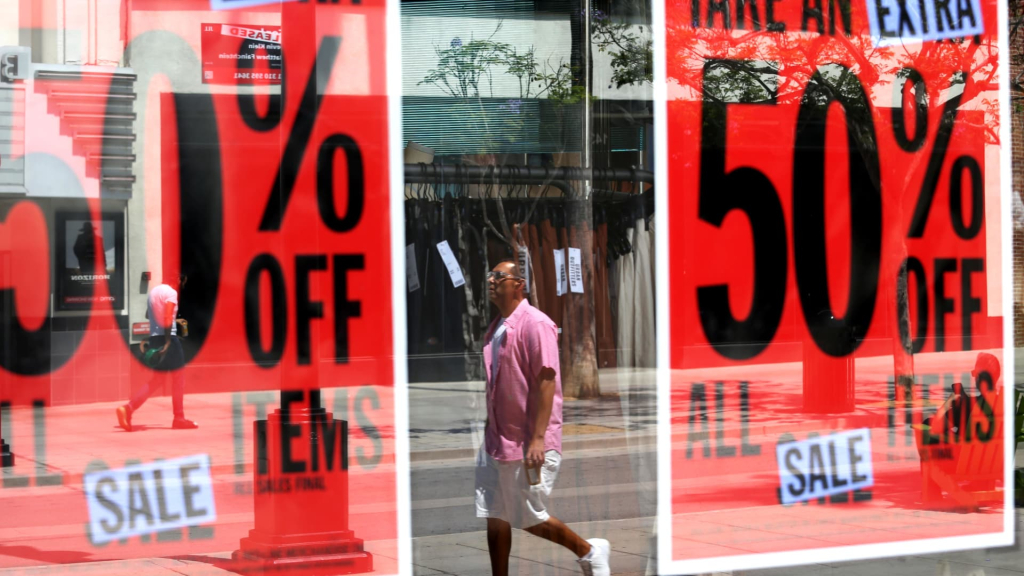As concerns mount over a potential decline in consumer spending, retailers are leveraging President Donald Trump’s trade policies to galvanize shoppers, encouraging them to purchase now to avoid impending price hikes and shortages due to tariffs.
Numerous direct-to-consumer and private brands, including Beis, Bare Necessities, Fashion Nova, and Knix, have incorporated tariff-related messaging into their recent advertising efforts following Trump’s announcement regarding reciprocal tariffs affecting numerous nations.
The retail landscape entered a state of heightened anxiety after the administration’s initial announcement. Even though tariff rates were temporarily lowered for most countries, businesses find it challenging to strategize amidst uncertainty regarding the long-term impact of these tariffs. Experts suggest a notable decrease in consumer spending is on the horizon, posing difficulties for businesses, regardless of their scale, as they brace for the storm ahead.
Some companies that import goods from China, facing tariffs as steep as 145%, have opted to halt or cancel orders. Meanwhile, those with supply chains in countries like Vietnam and Cambodia are acting swiftly to stockpile inventory before tariffs are reinstated.
While the precise ramifications vary across different sectors and brands, Trump’s trade war presents a significant threat to retailers who primarily depend on selling non-essential goods.
A notable example is the lingerie retailer Bare Necessities, which launched a “pre-tariff sale,” offering discounts of around 30% while urging consumers to make purchases before the tariffs came into effect.
“Tariffs? No idea. A good deal? We’ve got you covered. Save up to 30% before prices shift,” the company communicated to customers via text message. “Just last week, we didn’t even know how to spell ‘tariff,’ but we definitely understand the value of up to 30% off!”
Although discounting in anticipation of rising costs may seem counterintuitive, industry professionals assert that any actions retailers can take to stabilize their finances ahead of a predicted drop in consumer demand are prudent. Sonia Lapinsky, a partner and managing director at consulting firm AlixPartners, indicated that “retailers should do everything they can to maximize demand as soon as possible,” as trends have indicated customers have been increasingly hesitant since early this year.
“Businesses are grappling with the trade-off of maintaining margins now versus the potential of not generating demand in the coming months. This year has proven particularly taxing for many as they struggle to anticipate market conditions,” Lapinsky added.
For smaller brands, lacking the extensive resources of larger retailers, enhancing cash flow in advance of a potential demand downturn could be essential for survival.
“Tariffs will affect every business, but smaller companies will likely feel a greater impact due to their limited global supply chain options,” noted Lauren Beitelspacher, a marketing professor at Babson College in Massachusetts. “In contrast, larger retailers like Target or Walmart have more diversified supply chains.”
The impact of pre-tariff promotions might explain the unexpectedly positive spending data recorded in March, as consumers rushed to make purchases ahead of anticipated price increases, particularly on high-cost items like vehicles.
“Affluent consumers are responding to tariff discussions and advertisements by shopping early to secure their purchases at current prices,” Lapinsky remarked.
Some companies, like luggage brand Beis, chose not to launch a formal pre-tariff sale, opting instead to inform customers of the uncertainties surrounding price adjustments. They candidly stated that while the situation is dire, prices remain stable “for now.”
“Let’s cut to the chase: this tariff situation is a complete disaster and we’re all feeling the impact,” Beis communicated to shoppers, further emphasizing their confusion over future pricing changes. “Changes could be imminent, but then again, we really don’t know.” They punctuated their message with humor, suggesting they might resort to ramen diets or even consider launching an OnlyFans account to handle financial pressures while encouraging shoppers to act before prices change.
Utilizing humor to address a contentious topic like tariffs is a calculated approach, as brands typically wish to avoid alienating customers based on differing political views, according to Barbara Kahn, a marketing professor at The Wharton School.
“Brands aim to defuse the situation, steering clear of political affiliations while still presenting attractive deals,” Kahn explained. “Humor offers a way to shift the narrative from politics to value, inviting consumers to take action without the burden of political undertones.”


























